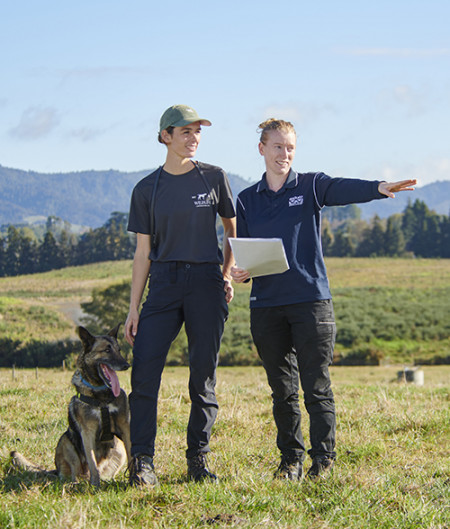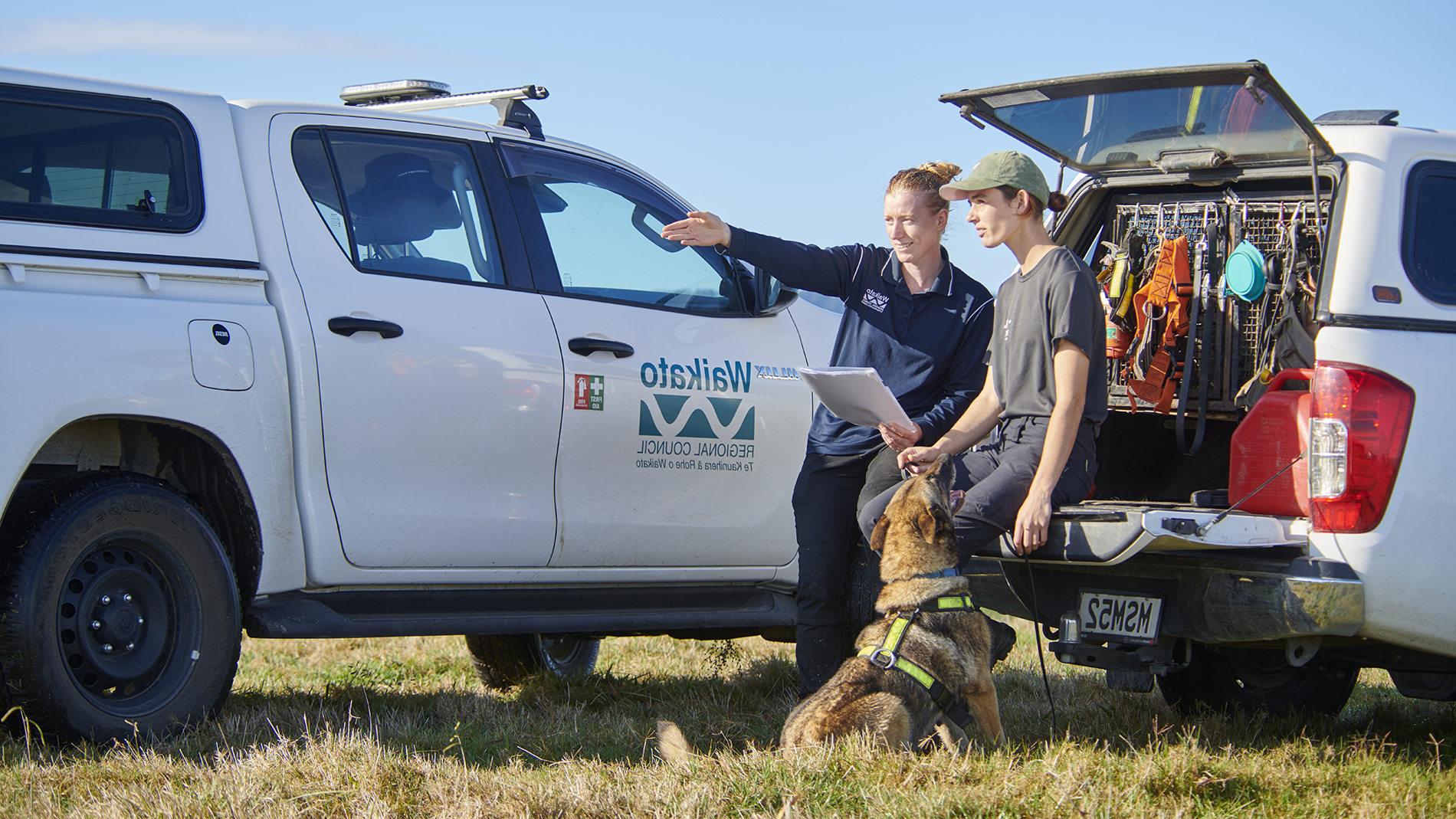“Without Uzi, it can take seven people all day to cover an area of about 23 hectares, doing a grid search, walking side by side. A dog is so much faster, and so more efficient in terms of staff resourcing.”
- Sinead Spedding, Biosecurity Officer
Man’s best friend is helping Waikato Regional Council combat what is often called the world’s worst weed.
Uzi, a seven-year-old Malinois Belgium shepherd, is the first detector dog in New Zealand to be trained to locate the scent of alligator weed, one of the most significant pest plant threats in the Waikato.
Uzi’s focused intensity and desire to work makes her perfect for the job of finding alligator weed at the many hundreds of sites that have been controlled by Waikato Regional Council.
Biosecurity Officer Sinead Spedding says Uzi’s job is to see if there is a presence of alligator weed in the sites, where now there should be none. Uzi’s been on the payroll since November last year.
“It’s such a massive job,” says Sinead. “Full eradication from a site cannot be declared until about 10 years after it was last seen, so this is why we got Uzi trained – her job is surveillance.
“Without Uzi, it can take seven people all day to cover an area of about 23 hectares, doing a grid search, walking side by side. A dog is so much faster, and so more efficient in terms of staff resourcing.”
 In New Zealand, alligator weed spreads by the merest of fragments, and grows superfast on water and land, making it expensive and difficult to control.
In New Zealand, alligator weed spreads by the merest of fragments, and grows superfast on water and land, making it expensive and difficult to control.
Alligator weed is one of the council’s biggest pest plant control programmes. The weed is present in the Waikato River between Port Waikato and Cambridge, and without control it could reduce the river to a narrow channel.
Alligator weed also outcompetes native plants, pasture and crops.
K9 Detection Services Dog Trainer/Handler Kim Tiddy says she has 100 per cent confidence in Uzi’s ability to find alligator weed where there should be none.
“You have to trust your dog because they are the ones that can sniff it, not you.
“You can always tell when your dog is on scent. There’s a clear change in their behaviour as they work the scent then, once they’ve pinpointed what they’re searching for they lie down and put their nose on the target.”
And get a treat and fuss, of course. For Uzi, that’s her ball – it’s how she was taught to sniff out alligator weed in the first place.
“We select dogs with a high drive, usually for a toy, like a ball, and then we hide the ball with the target so the dog will know they get the ball with the alligator weed. That’s the short side of how it works,” says Kim.
Kim, who was brought up on a farm in the Waikato and has worked for K9 Detection Services for about three and half years, says teaching Uzi to detect alligator weed was challenging because the plant that grows on land is quite different to that which grows in water, in terms of look and smell.
“We worked on aquatic plants first and then found out that didn’t work for land-based plants, so we had to train that separately.”
Waikato Regional Council also uses detector dogs as part of its evergreen buckthorn, velvetleaf and wallaby management programmes.



To ask for help or report a problem, contact us
Tell us how we can improve the information on this page. (optional)